15 April 2016
*Applications Open!
4th 2016 Australian Wildlife Conservation Training Course (Introductory)
Applications open: 15 April (Fri.) - 15 June, 2016 (Wed.)
※Second round applications may be called for, in some circumstances
When: August 29 (Mon.) - September 11 (Sun.), 2016 (14 days)
Available places:12 (Minimum 10 participants)
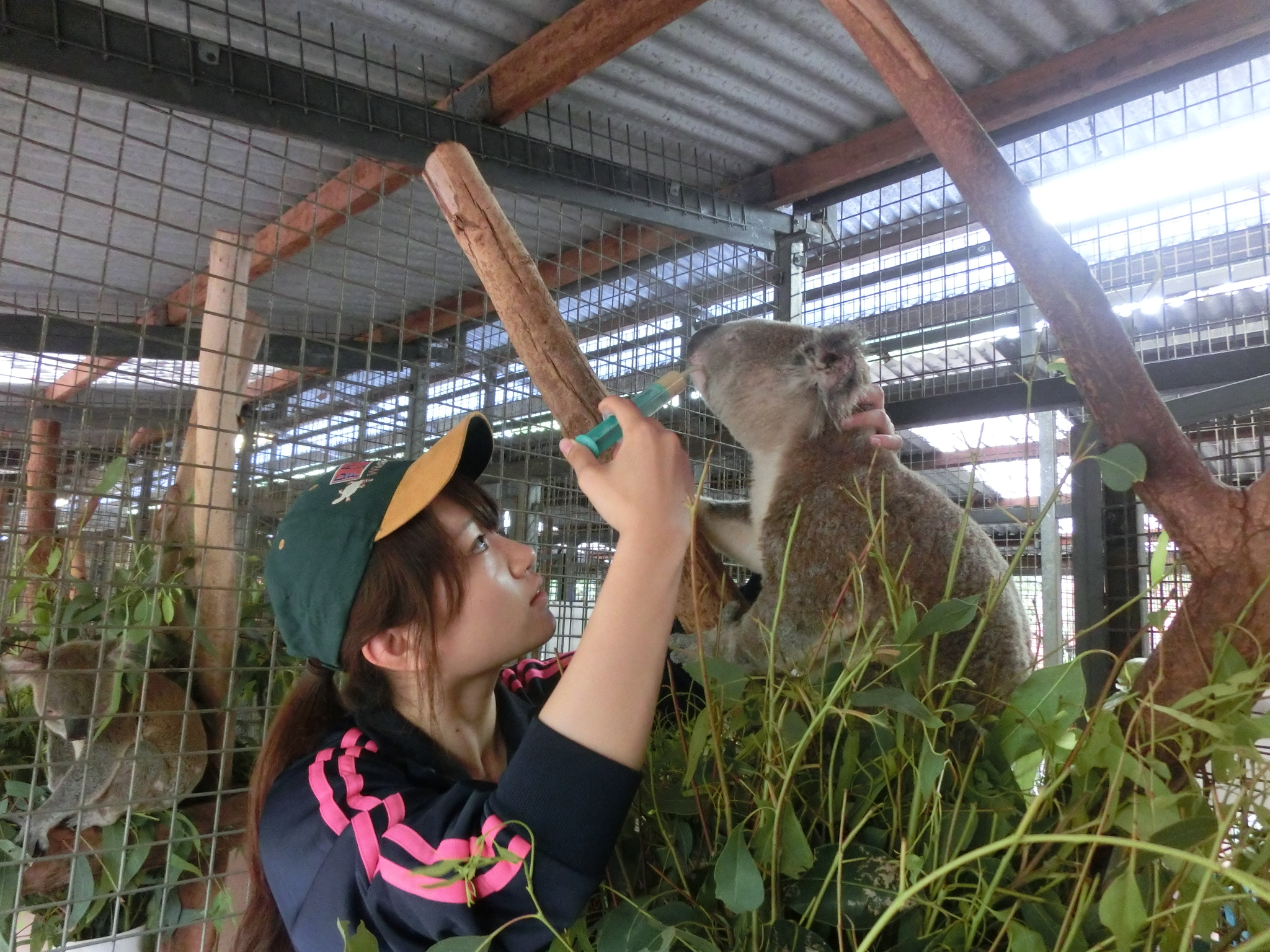 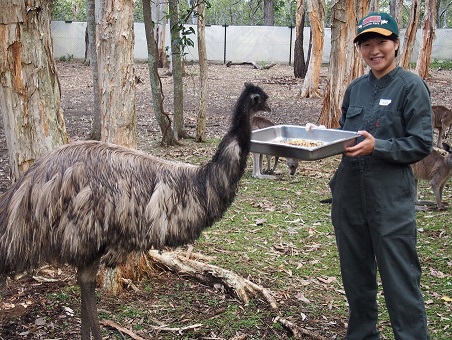 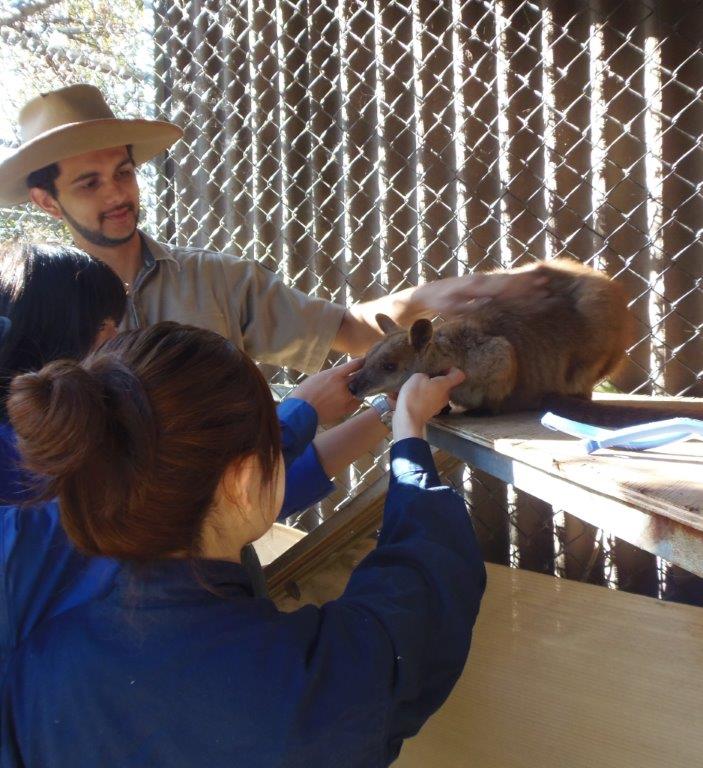
Lectures and training will be provided at a state government
koala hospital and wildlife park and the University of Queensland, etc. The
course is replete in practical training in animal husbandry and clinical
training involving marsupials (koalas, kangaroos, etc.) and monotremes
(platypus and echidnas), something that is simply impossible to do in Japan.
Autopsy pracs utilising koalas and other animals that died of disease or were
killed in traffic accidents are also included in the course, which provides a
valuable and unique learning experience not only for Japanese, but also
Australian students and other adults involved in animal and veterinary areas. Participants
will also visit carers who are raising koalas, platypi and other wildlife that
were orphaned not long after birth and see for themselves the role that
everyday citizens also play in wildlife conservation in Australia.
Please go to the 'Tour & Course information' page for more details about each course http://www.ajwcef.org/english/tour-info.main.htm
27 October 2015
*Applications Open!
1st 2016 Australian Marine Life Conservation Training Course (Introductory)
2nd 2016 Australian Wildlife Conservation Training Course (Advanced)
3rd 2016 Australian Wildlife Conservation Training Course (Introductory)
Applications open: 15 October (Thur.) - 30 November, 2015 (Mon.)
※Second round applications may be called for, in some circumstances
※If
you wish to apply for the 3rd 2016 Australian Wildlife Conservation
Training Course (Introductory), please be sure to read the extra
information regarding flights at the end of this post.
1st 2016 Australian Marine Life Conservation Training Course (Introductory)
When: February 27 (Sat.) - March 6 (Sun.), 2016 (9 days)
Available places:15 (Minimum 8 participants)
  
This course will be conducted under the guidance of
university researchers at the Moreton Bay Research Station, a facility of the
prestigious University of Queensland (ranked 11th in the world in
the areas of agriculture and environmental studies).
Moreton Bay has one of the highest levels of marine
life diversity and is one of the few dugong habitats in the world. It is home
to dolphins, manta rays, humpback whales (July-November) and many other
creatures.
Researchers and students from Europe and the United States
also travel to and stay at this centre for research and training, creating a
very international and highly academic environment. This environment also gives
participants in the course a valuable opportunity to develop international
networks.
2nd Australian Wildlife Conservation Training Course (Advanced)
When: March 5 (Sat.) - March 13 (Sun.), 2016 (9 days)
Available places:10 (Minimum 7 participants)
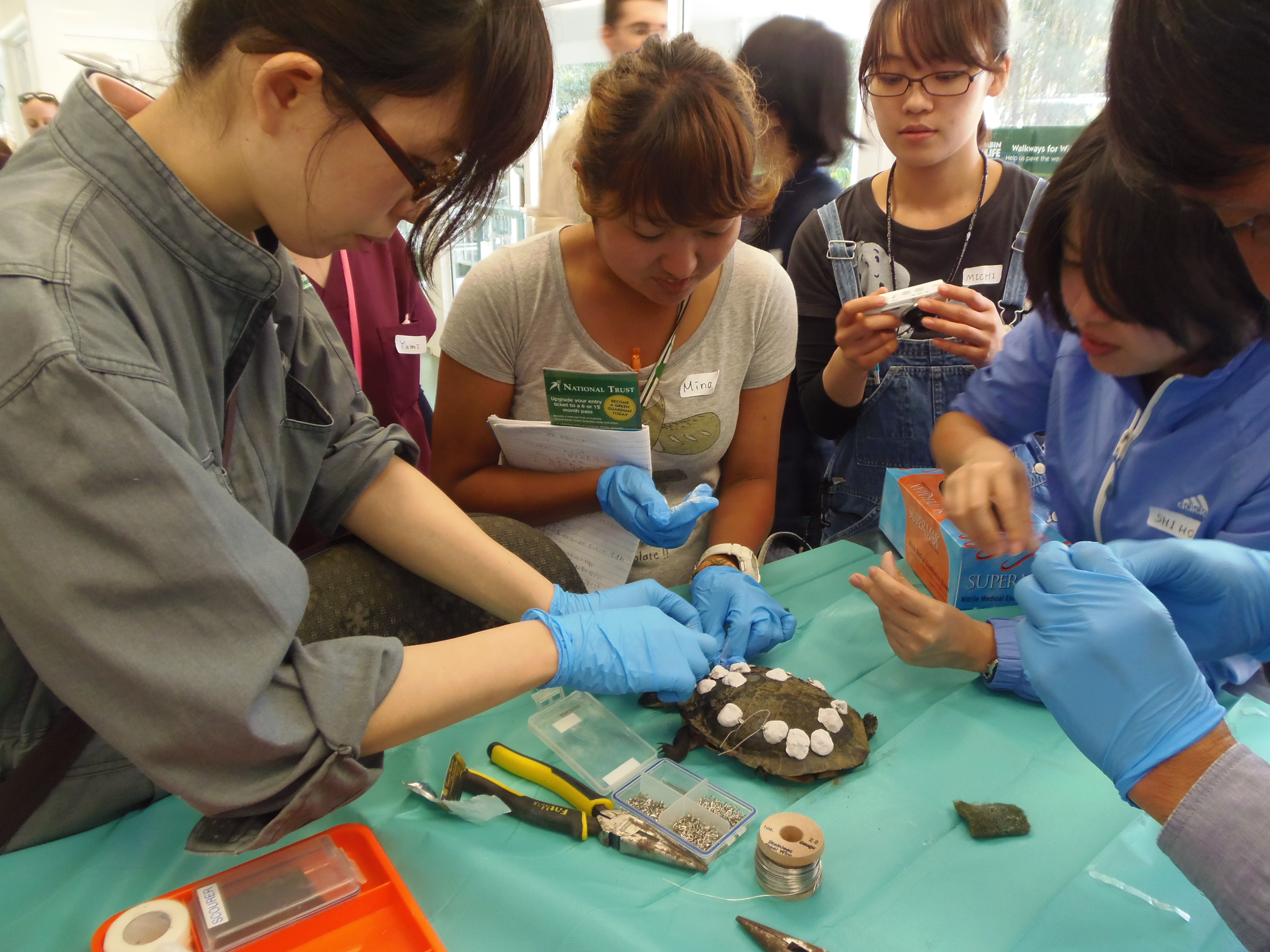 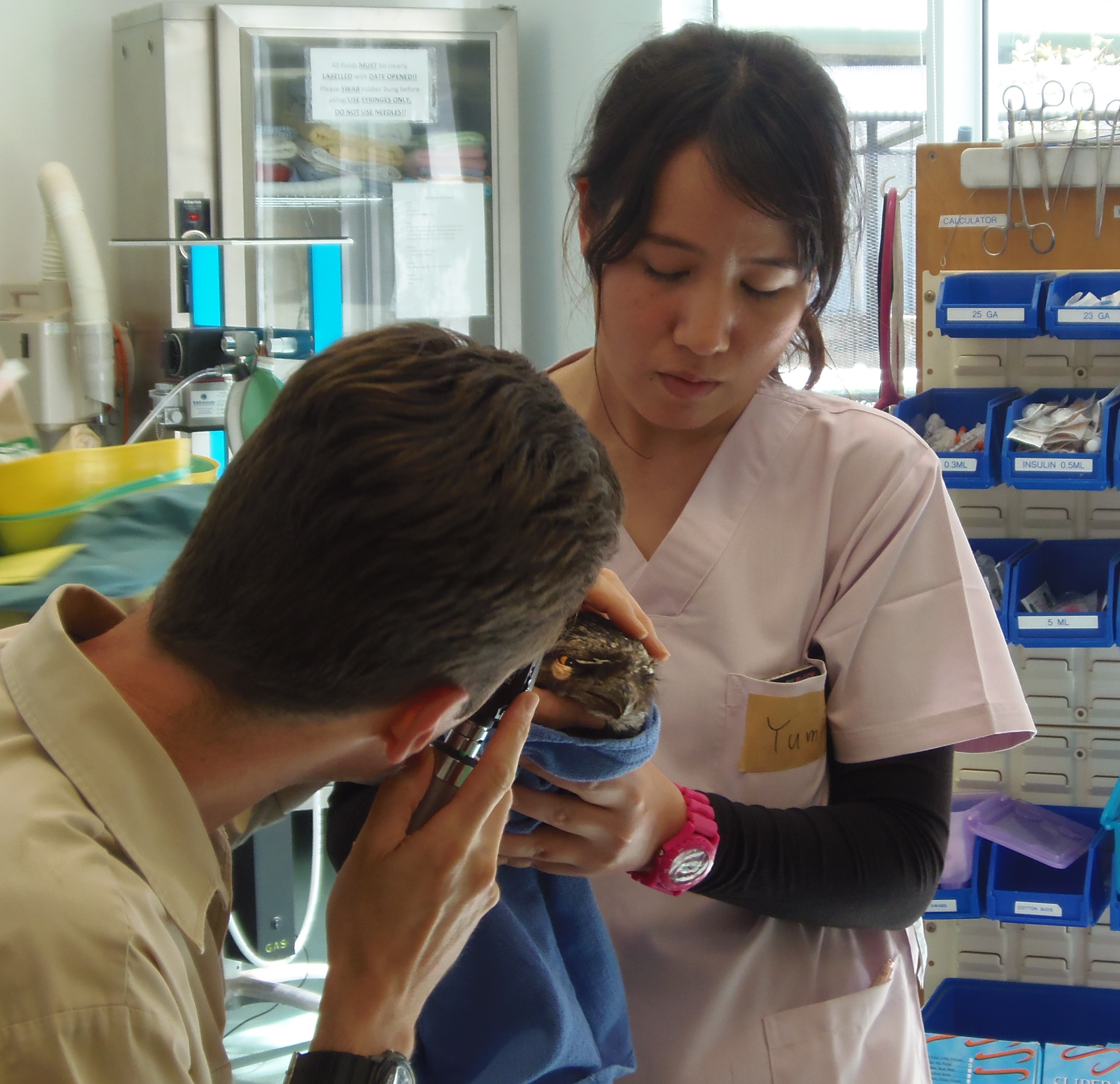 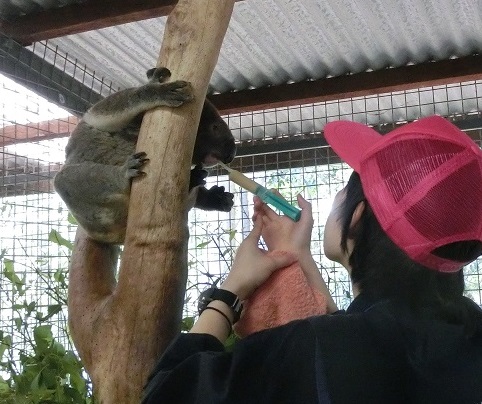 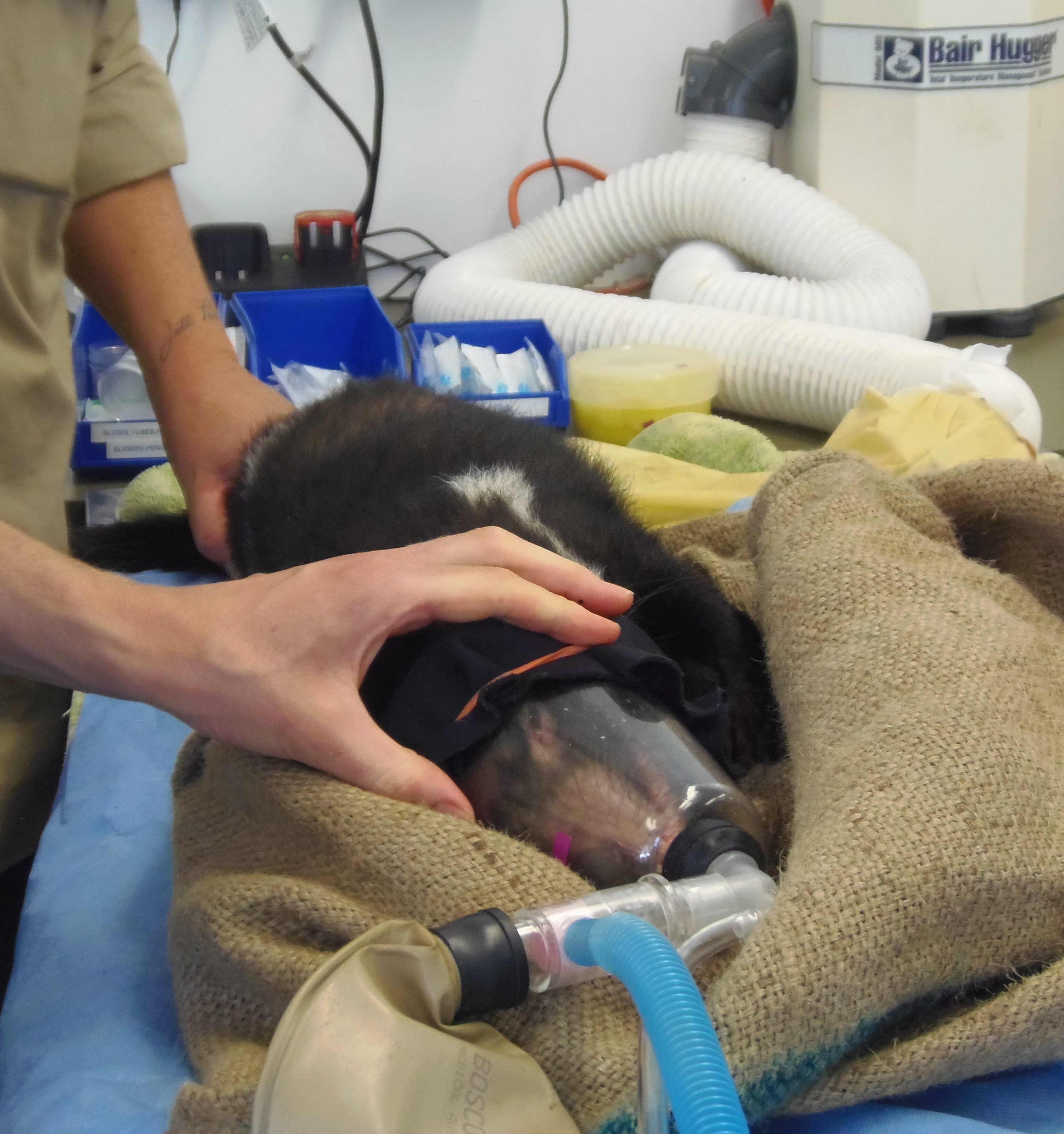
Practical training will
be provided at a specialist level in wildlife conservation, particularly
endangered Australian species. Participants will also learn about captive
breeding, recovery plans, the rescue and rehabilitation of injured wildlife and
the care of orphaned wildlife, and ecological observations of wildlife in the
natural environment will provide the basis for consideration on how urban
wildlife can co-exist with humans. In addition, training will provide an avenue
to learn about wildlife diseases, epidemiological knowledge regarding zoonoses,
biosecurity methods, and ethics and animal welfare in relation to wildlife
conservation and rescue. There will also be the opportunity to interact with
local veterinarians, rangers and other people involved in environmental
conservation.
3rd Australian Wildlife Conservation Training Course (Introductory)
When: March 13 (Sat.) - March 27 (Sun.), 2016 (15 days)
Available places:12 (Minimum 10 participants)
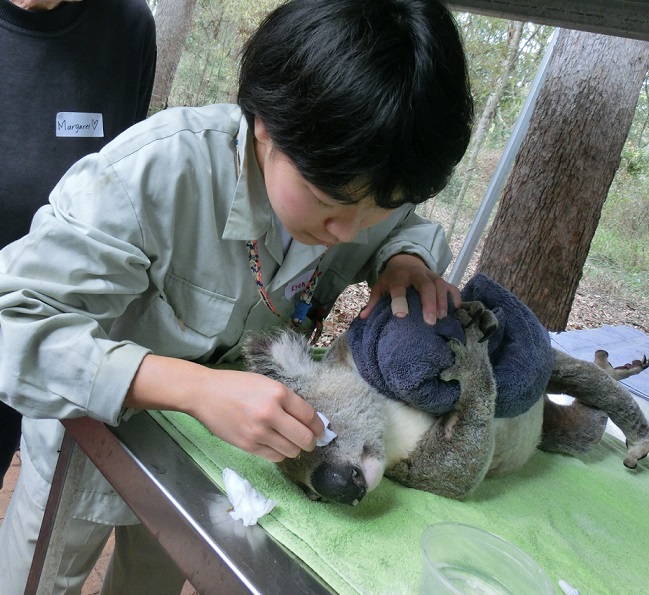 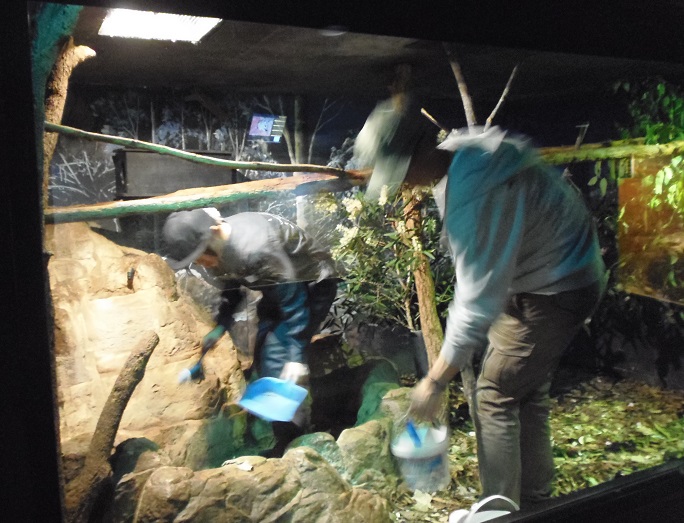 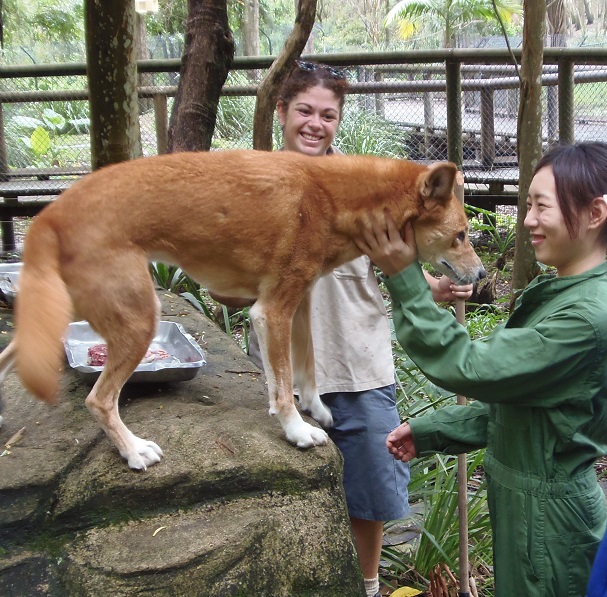 Lectures and training will be provided at a state government
koala hospital and wildlife park and the University of Queensland, etc. The
course is replete in practical training in animal husbandry and clinical
training involving marsupials (koalas, kangaroos, etc.) and monotremes
(platypus and echidnas), something that is simply impossible to do in Japan.
Autopsy pracs utilising koalas and other animals that died of disease or were
killed in traffic accidents are also included in the course, which provides a
valuable and unique learning experience not only for Japanese, but also
Australian students and other adults involved in animal and veterinary areas. Participants
will also visit carers who are raising koalas, platypi and other wildlife that
were orphaned not long after birth and see for themselves the role that
everyday citizens also play in wildlife conservation in Australia.
Please go to the 'Tour & Course information' page for more details about each course http://www.ajwcef.org/english/tour-info.main.htm
**Special
notice to participants in the 3rd Australian Wildlife Conservation
Training Course (Introductory) - Please consider the following when
making your flight reservation.
Previously, participants coming from Narita to the Gold
Coast with Jetstar could utilise a convenient and relatively low-cost direct
flight the night before the first day of the course (assembly day) and arrive
just after 6 o’clock in the morning in time for the 8 a.m. assembly time.
However, Jetstar recently announced that it would no longer be operating direct
flights on every day of the week, with flights on some days requiring a stop-over.
For this course, the assembly time is 8 a.m. on Sunday, March 13, at the
arrivals lobby of the Gold Coast Airport. Unfortunately, the overnight flight
from Narita on March 12 is not a direct flight, meaning that a stop-over is
scheduled and the arrival time at the Gold Coast is now after 11 a.m., too late
for the 8 a.m. assembly time. Other airlines may be used, but each of these
also requires a stop-over, which complicates matters. As such, AJWCEF has
decided that participants who wish to use Jetstar’s direct flight from Narita
to the Gold Coast on March 11 to arrive one day early will still be greeted by
AJWCEF at 8 a.m. on March 12 and taken to the advertised accommodation . In
such cases, AJWCEF will subsidise half of the cost of the extra night of
accommodation, and participants will be required to make a separate payment of
$30 AUD (approx. 2700 JPY) upon arrival. At the time of this notice, the cost of
the direct flight on March 11 was more than 15,000 JPY lower than the March 12
flight which includes a stop-over. (This applies only to those participants
who will not already be in Australia
prior to the commencement of the course.)
Please give careful consideration to the above when booking
your flights. Please also advise our office whether you will need to be met on
March 12 (Sat.) or March 13 (Sun.) so suitable arrangements can be made.
Regardless of the day, participants are asked to assemble at 8 a.m. at the
arrivals lobby of the Gold Coast Airport. Thank you.
25 September 2015
*The 4th (Wildlife Conservation) Introductory Training course has successfully completed!!
When
23 August (Sun.) − 6 September (Sun.) , 2015 (15 days)
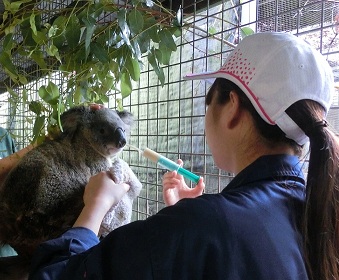 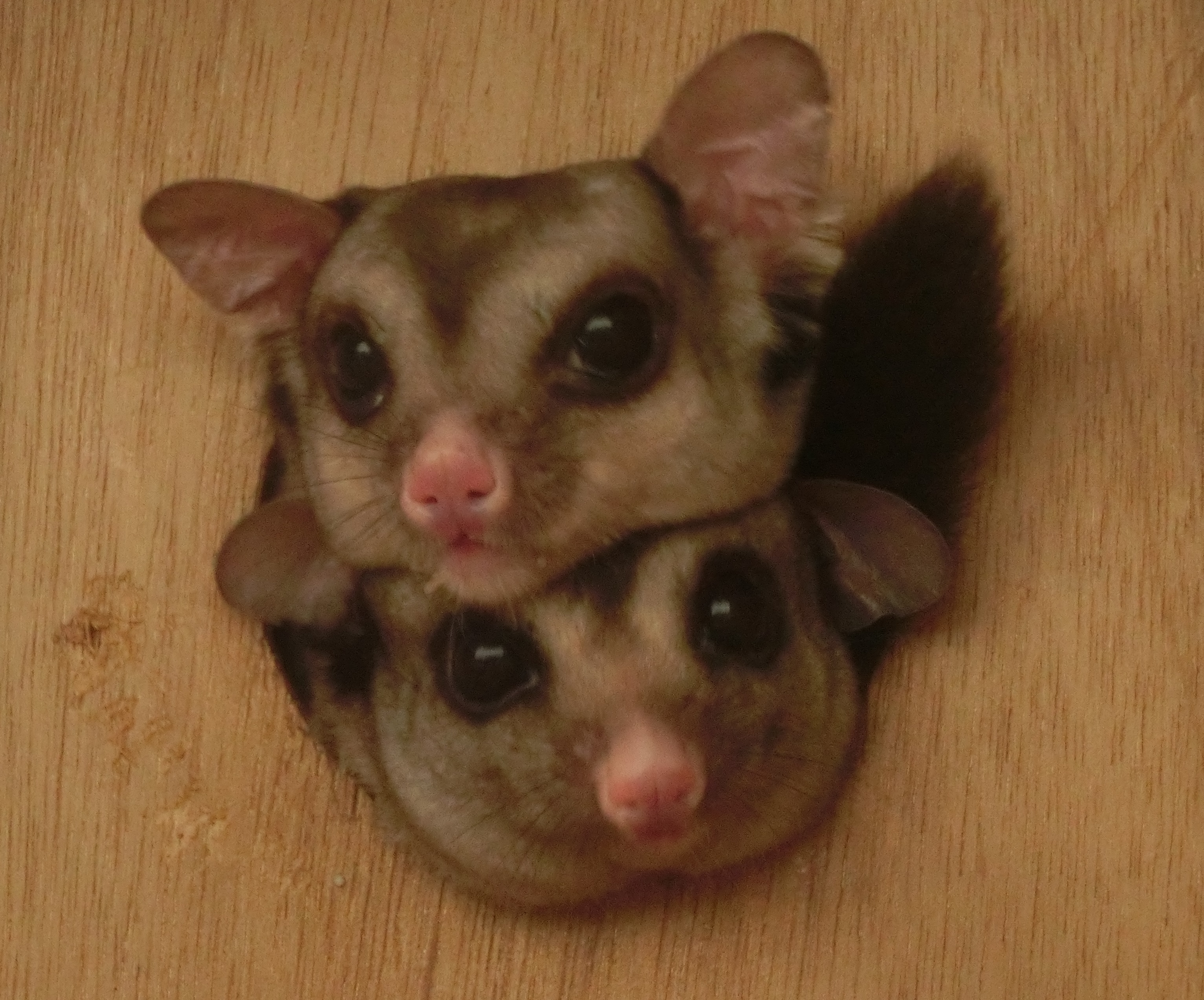 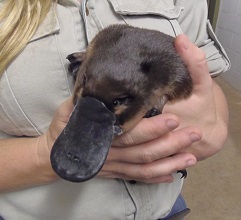 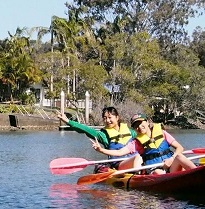
Take part in practical training and lectures about
some of Australia’s better-known unique wildlife (marsupials and monotremes) to
learn the basics about their anatomy and ecology, as well as learn about the
fundamentals of protection and husbandry management. Not only will you gain
knowledge about the natural environment of the eucalyptus forests that are
vital habitat for wildlife, our program also includes a tree-planting activity.
We are currently planning 2016 Marine life (Introductory), Wildlife (Introductory & Advanced)!
   
1 July 2015
*Applications for the 3rd (Marine Life Conservation) Introductory Training Course is now closed.
2015 3rd Australian Marine Life Conservation Training Course (introductory)
When
15 August (Sat.) − 23 August (Sun.) , 2015 (9 days)
Number of Participants
15(AJWCEF members will be given priority. )
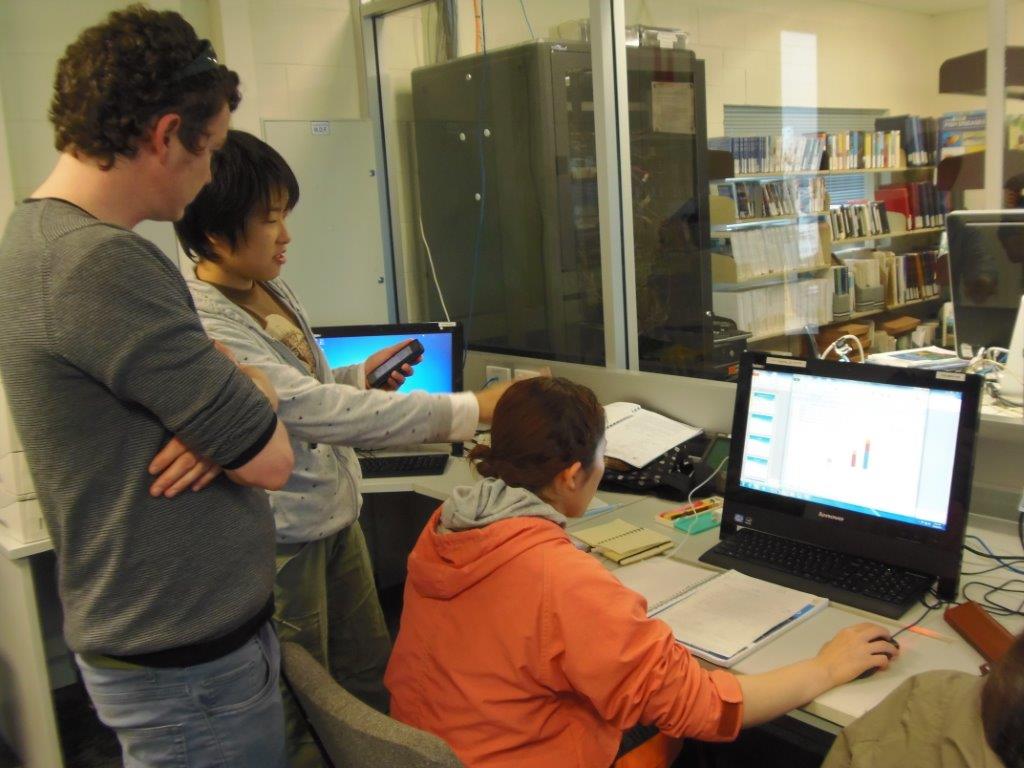   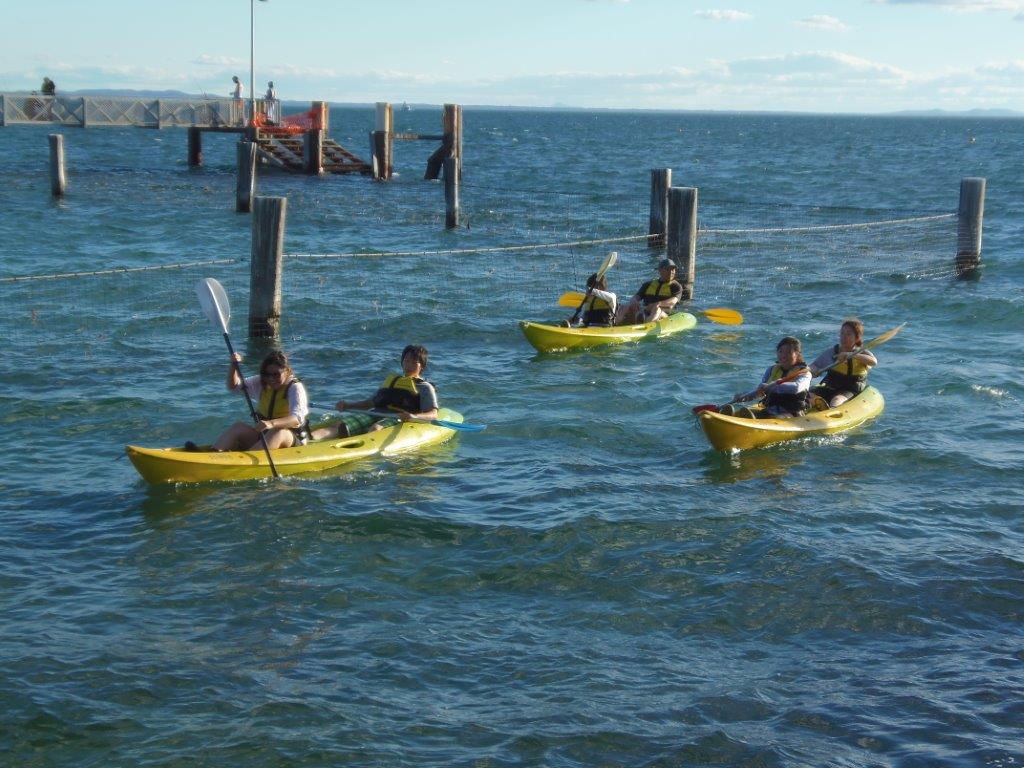
This course will involve the study of marine environments
and the basics of wildlife conservation at the University of Queensland’s Moreton
Bay Research Station (MBRS). This course is run in cooperation with the
University of Queensland, which is a leading authority among Australian
Universities in this field.
The
MBRS is on North Stradbroke Island, one of the largest sand islands in the world, which is
situated in Moreton Bay on the eastern coast of
Australia. This part of the ocean is home to
dugongs, sea turtles, rays, dolphins, whales (between July and
November), and a diverse array of fish, marine plants and more,
making
it a hub for subtropical marine research.
During the course, students will be staying at the
MBRS with other researchers and students from across the world, as well as
receiving instruction and guidance from teachers from the University of
Queensland. This will allow the students to actively interact with people from
all over the world in their free time.
|
7 Oct 2015
*See new photos from the introductory wildlife conservation
training course (August) in our Photo Gallery! http://album.ajwcef.org/
22 May 2015
*Report on the March 2015 Introductory & Advanced Training Course has been posted on AJWCEF News page!
http://www.ajwcef.org/english/ajwcef-news.htm
8 April 2015
*See new photos from the advanced wildlife conservation
training course in our Photo Gallery! http://album.ajwcef.org/
31 Oct 2014
Report on the August 2014 Introductory Training Course has been posted on AJWCEF News page!
http://www.ajwcef.org/english/ajwcef-news.htm
24 Oct 2014
*See new photos from the introductory marine life
conservation
training course in our Photo Gallery! http://album.ajwcef.org/
6 Oct 2014
*See new photos from the introductory wildlife conservation
training course in our Photo Gallery! http://album.ajwcef.org/ 9 July 2014
*AJWCEF
introduces Japanese viewers to wildlife conservation activities on national
television -NHK BS-1!
Program: Sekai Bikkuru Animal City!
Schedule: live broadcast on 13 July (Sun). 5:00 – 5:50 p.m. (Japan time)
(Also on NHK World premium on 14 July (Mon) at 4:10 p.m. (Japan
time)
(Repeated 4 August, 8 p.m. (Japan time)
http://www.nhk.or.jp/agora/yotei/index.html
April 14 2014
*See new photos from the introductory wildlife conservation
training course in our Photo Gallery! http://album.ajwcef.org/
28
March 2014
A blue-eyed koala visited our hospital!
 It was a rare event when this blue-eyed koala
was brought in to the Moggill Koala Hospital, one of the locations where AJWCEF
wildlife conservation training course participants undertake practical
training. This koala returned to the bush in good health after receiving a
check-up at the hospital. (Photo: Moggill Koala Hospital) It was a rare event when this blue-eyed koala
was brought in to the Moggill Koala Hospital, one of the locations where AJWCEF
wildlife conservation training course participants undertake practical
training. This koala returned to the bush in good health after receiving a
check-up at the hospital. (Photo: Moggill Koala Hospital)
14 February 2014
*Chunichi Newspaper features AJWCEF two-way broadcasting
educational program
Chunichi Newspaper
AJWCEF’s
program of conducting environmental education in a second language via internet
link-up is going full pace. The newspaper told readers about the live internet
link-up session conducted on February 10 between Minami-Katabira Elementary
School in Gifu prefecture, Japan, and Pullenvale State School in Queensland,
Australia.
Through
this program, AJWCEF also links Japanese high schools with Australian high
schools and environmental conservation facilities to not only deepen ties
between the two nations, but also raise awareness about environmental
conservative.
20 July 2012
*Two-way broadcasting
Environmental and Language Education using Internet Skype between the two countries of Australia and
Japan
Japanese goes global (From Cleveland District
State High School Newsletter)
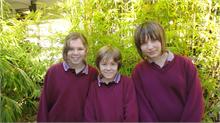 Language learning at
Cleveland High took a giant step forward on the first day of Term 3 when we
linked up with Kani City Technical College, near Nagoya in Japan, for a video
conference with a group of Japanese students during their English lesson. Year
8 students Celine Gatzias, Maeve Campbell, Naveen Campbell and James Lewis
volunteered at very short notice to talk to the Japanese students and narrate a
slide show that presented a pictorial overview of our school. They then
answered questions which the Japanese students asked about the school and
Australia before using their own Japanese language skills to ask the Kani City
students about Japan. They did a fantastic job and it was obvious that the
Japanese students really enjoyed talking to them and hearing about Australia. Language learning at
Cleveland High took a giant step forward on the first day of Term 3 when we
linked up with Kani City Technical College, near Nagoya in Japan, for a video
conference with a group of Japanese students during their English lesson. Year
8 students Celine Gatzias, Maeve Campbell, Naveen Campbell and James Lewis
volunteered at very short notice to talk to the Japanese students and narrate a
slide show that presented a pictorial overview of our school. They then
answered questions which the Japanese students asked about the school and
Australia before using their own Japanese language skills to ask the Kani City
students about Japan. They did a fantastic job and it was obvious that the
Japanese students really enjoyed talking to them and hearing about Australia.
It was a wonderful
opportunity to communicate with people in Japan and just a sample of what the
future holds for students who choose to study a foreign language at this
school. The technology available in the Languages Centre has enabled us to
establish a regular connection with Kani City schools, so that our students
have the chance to communicate directly with Japanese students. what the
future holds for students who choose to study a foreign language at this
school. The technology available in the Languages Centre has enabled us to
establish a regular connection with Kani City schools, so that our students
have the chance to communicate directly with Japanese students.
Congratulations to Celine, Naveen, Maeve and James for such a friendly and well
delivered presentation On the global stage!
1 May 2012
*Australian Federal Government Place Koalas on the Vulnerable Species List
On
the global On April 30, the federal government reclassified koalas as
'vulnerable'under Australia's Environment Act in Queensland, New South
Wales and the koala habitat in those areas.
** Photos of AJWCEF wildlife conservation study tours and
training courses can be seen in our Photo Gallery.
|